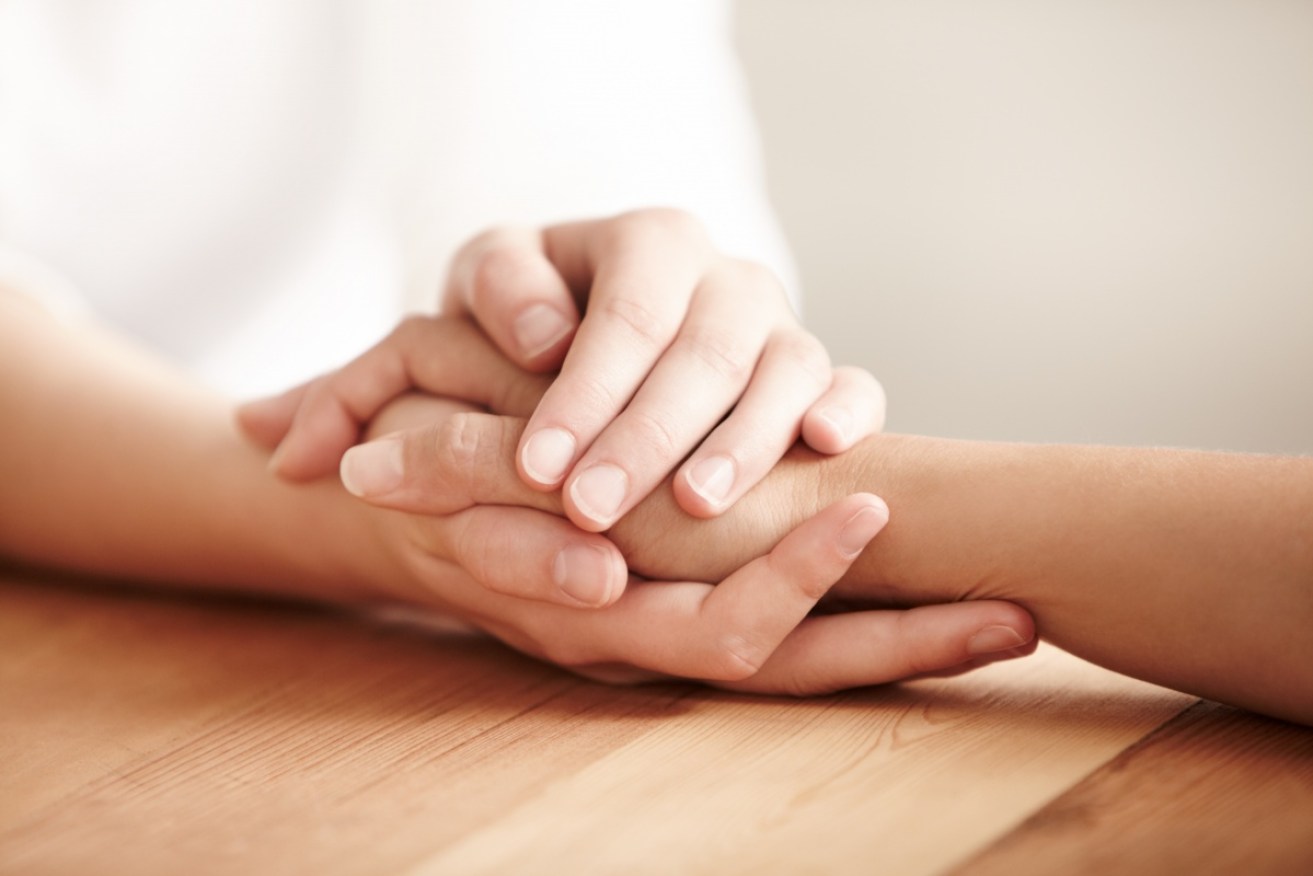How to support a friend through breast cancer


Battling cancer is a very emotional time for the person diagnosed and yourself. Photo: Getty
Cancer is exhausting. It corrals all emotional energy, all physical energy, all psychological energy. It’s a rough road to drive down. For the family and friends of a person facing this diagnosis, there’s never been a more important time to be there.
But how do you best support your loved one as they face off this hostile disease?
Rina Gualtieri was 42 when she was diagnosed with breast cancer. She was fit. She was healthy. Cancer swooped in out of the blue and took over her plans.
“I was probably in the best condition of my life,” says Rina, reflecting on her diagnosis.
“I’d just got home from training one night and I found a lump on my right side. When I went to the doctor they also found a lump on my left breast as well.
“I had bilateral breast cancer.”
Keeping connected to a person going through a cancer diagnosis and treatment is really vital, Rina explains.
“It’s a very emotional and raw and frightening time,” she says. “For the person going through it and also for your friends and family as well.
“A lot of people don’t know what to say initially and some people stay away because of that. I guess the big thing I would say is: if you don’t know what to say, say that. Just say, ‘I don’t know what to say’. That breaks down barriers.”
She had always been an independent person, so asking for help was hard. Knowing that about her, one of Rina’s friends set up a private Facebook page to organise her friends into a kind of support force.
The group could offer help with the real, practical needs a person has when they’re facing a barrage of appointments, physical weakness, fatigue, illness, recovery and everything in between.

Going to a doctor’s appointment is a great way to offer support.
“She made a spreadsheet of all these jobs,” Rina explains. “Things like cooking for me, taking me to all my doctor appointments, to the hospital, things like that.”
Rina says having someone to pay attention at your appointments and take notes is also a massive help.
“A lot of the information you’re getting is not something you come across every day. The terminology and the language can be complex and you’re still in a bit of shock too. So having that kind of support was amazing.”
Depending on the individual’s circumstances, your friend might need help with babysitting, walking the dog, mowing the lawn, vacuuming, picking up groceries: all the tasks of everyday life that suddenly become a major effort or even totally out of the question for someone undergoing major treatment.
“I was really touched. People came and mowed my lawn, people came and cooked, people rang up and offered to bring me extra groceries. Because a lot of people say, ‘I’m here if you need me’, and leave it at that. The key thing I would say is offer what you can do.”
Maybe you can’t cook, but you can take your friend to a chemo appointment, or you can’t drive but you can run a vacuum over the house. Offer what you can, whatever lends itself to your personal strengths.

A helping hand on any task is always appreciated.
Rina says that maintaining social contact is also really important. Everyone’s life is busy but even just a quick email or text every now and then can be really valuable to someone sitting at home and feeling terrible.
“Your life goes from being busy – work, socialising, dating, all that kind of thing – to just home and hospital and it can be a bit lonely,” she says. “It takes 30 seconds out of your day to send someone a text message, but some of those messages just come at the right time. You’re not feeling the best, and a simple: ‘How you going, Rina? I’m just thinking of you’ would put a smile on my face for the day.”
Rina is in remission and back to training with a vengeance these days. Her friends and family continue to support her through sponsorship and participation in her Mother’s Day Classic running team, Rina’s Runners. You can also follow her progress on Instagram (@RinaG1).
DO:
- Offer real things you can do to help
- Maintain regular social contact with your loved one
- Mirror your friend’s mood: be positive when they feel positive, let them be sad when they feel sad
- Visit with a funny anecdote or story – something normal to talk about
DON’T
- Visit if you’re unwell, people undergoing cancer treatment can be immunocompromised
- Bring up horror stories about other people who had cancer
- Avoid a friend because you don’t know what to say
- Drop by unannounced – cancer treatment can be exhausting and they might need rest
- Get upset if they don’t get back to you right away. Cancer treatment throws your sleep and routine out and can affect your memory too.
The New Daily is a media partner of the Women in Super Mother’s Day Classic, which takes place in 100 locations around Australia on Sunday May 14, raising money for the National Breast Cancer Foundation to help fund breast cancer research.
